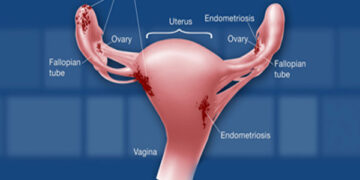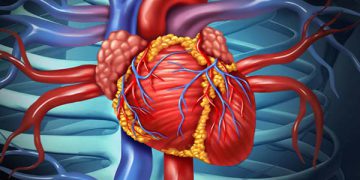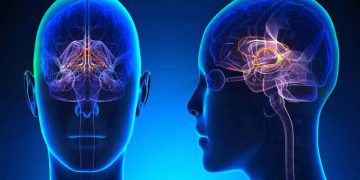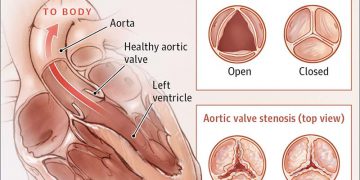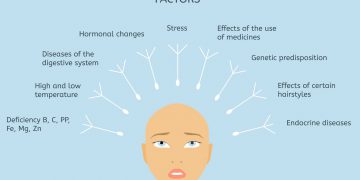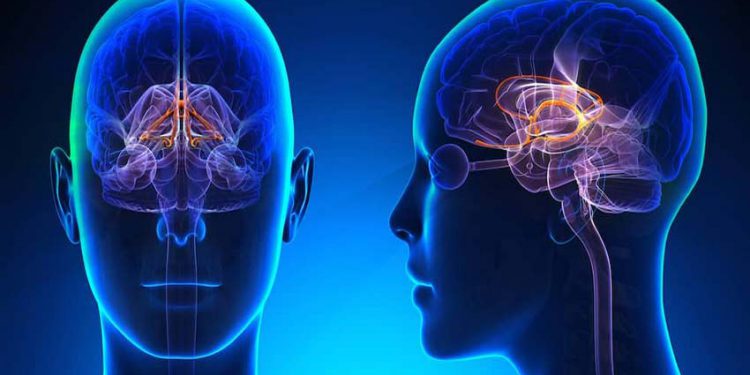Research shows that the brain needs to rest to be more efficient. But, does it actually go to sleep when the rest of the body does the same? Far from it! Researchers have discovered it works even harder during this period. And we’ll show you 10 amazing things the central nervous system does during our sleep time.
First, the concept of sleep
Sleep is very important for the health of the body. It is during this period that much of the repair of the tissues, the release of hormones, among other biological processes occur. In addition, good sleep is essential to maintain mental and physical functions. Yet, about 1.2 billion people around the world suffer from one sleep issue or the other, according to data gathered by disturbmenot.co.
However, studies also indicate that sleep deprivation increases the risk of developing cardiovascular diseases, obesity, hypertension, among others. In contrast, people who sleep excessively also face problems.
A complete sleep cycle involves approximately 90 to 120 minutes in total, so the average person will experience an average of four or five sleep cycles on a normal night that is assumed to be between 7 or 8 hours.
10 amazing activities the brain does during sleep
1. A real “brain cleaning”
From the chemical point of view, recent studies by Maiken Nedergaard, head of research at Rochester University Medical Center in New York state, point out that sleep helps the brain do a real “clean-up”, getting free of toxins. The research also suggested that brain glial cells undergo a kind of shrinkage, widening the space between neurons, thus allowing the “cleansing” of the organ. Cerebrospinal fluid is pumped faster through the brain during sleep and acts to eliminate waste products, such as molecular debris produced by brain cells and toxic proteins that can lead to dementia over time. Some brain disorders, according to this study, may be related to failures in this process.
2. Long-term information storage
One of the most incredible things that our brain does while we sleep is creating and consolidating memories. During sleep, the brain can transfer short-term memory from recent events to long-term memory. This is why sleep is quite important for learning; it literally helps us to solidify new information in the brain to remember it later.
3. Temporal paralysis
The brain causes the body to remain paralyzed while we are in REM phase. In the deepest stage of sleep, the part of your brain that is responsible for transmitting nerve impulses through the spinal cord sends a message to turn off motor neurons, causing temporary paralysis of about 20 minutes. Why? This is to prevent you from physically hitting or acting out your dreams and causing yourself harm. If you are one of those who kick during sleep or get up and sleepwalk around the house, then it is possible that you have a sleep disorder.
4. Energy renewal
One of the things that the brain does while we sleep is recharging our energy. Your brain and your body need to sleep all night to be ready for the next morning. And if not for this function of the brain, you will be more tired when you wake up. This also explains why you eat too much when you do not get enough sleep. Energy deprivation will prompt your brain to look for quick energy and high caloric food content since it has not been able to charge the batteries correctly during sleep. That explains why sleep deprivation leads to obesity and having enough sleep time is important to achieve weight loss.
5. Fine-tuning of new skills learned
While you sleep, your brain makes you better at dance, driving, and sports. According to research, during REM (rapid eye movement) sleep, your brain solidifies the information related to physical tasks, incorporating the essential moves into the temporal lobe. Once this information gets to your temporal lobe, the action will begin the process of becoming something automatic that you would not reflect on to carry it out.
6. Your body temperature decreases
During sleep, your hypothalamus causes your body temperature to decrease slightly by about two degrees. Scientists do not know why this happens but they know it is a natural process and they understand that refreshing the sleep environment favors attunement to the body and promotes a better night’s rest.
7. Your growth hormones are released
Even when you are not in the growth phase, your body still releases growth hormones while sleeping. They are needed to build new muscle cells after physical exercises or to heal wounds and cuts on the body. Because of this, sleep is important for recovery for everyone who wants to maintain a healthy body that functions perfectly.
8. Your muscles undergo spasms
You may not be the one who really gets up and walks around in your sleep. However, you must have felt that your muscles move unexpectedly from time to time, waking you up with all sorts of questions. Spasms are just normal reactions of the muscles being put in the resting state and can happen to any person during the early stage of sleep. However, they are not yet clarified by science.
9. Your immune system is at full throttle
The brain doesn’t only heal us while asleep. It also solidifies our immunity. Lack of sleep hampers the functioning of the physiological system designed to ward off infections. Just to give you an idea, the research found out that people who took the flu vaccine and did not get enough sleep the next night did not create the antibodies needed for protection against the virus. Do you still wonder why drugs you took the night before seemed to have worked effectively after waking up?
10. The brain makes BIG decisions
The fully complex and intelligent human brain is able to process information and prepare to make decisions even while the person is asleep. The thing is so incredible and powerful that the brain is even able to make important connections and new discoveries during sleep. So now, if you seem to have a seemingly intractable problem, just try to take some time off with a nap.
Conclusion
A good night’s sleep is imperative for the health of the body and mind. It is during this time that the body rests and the brain reorganizes for the next day. Always take your sleep hours seriously.






